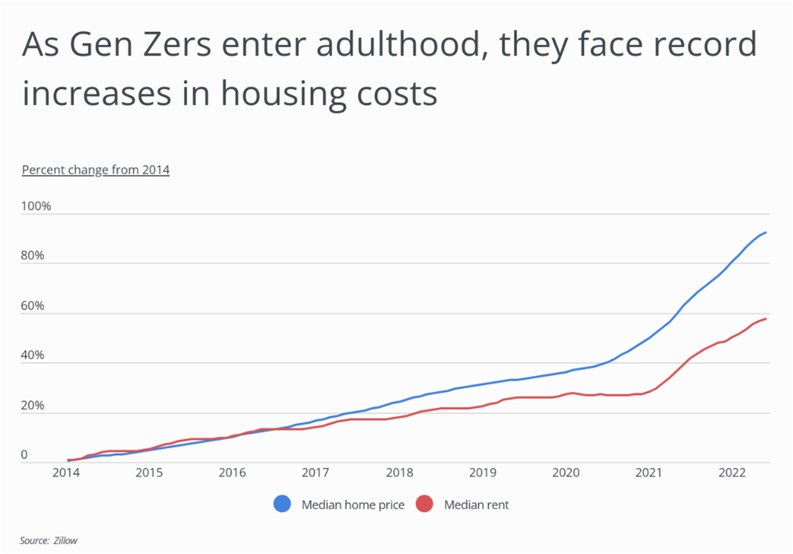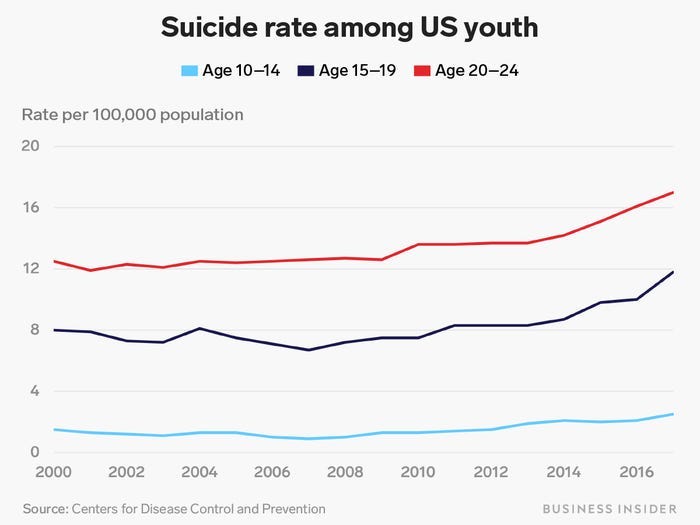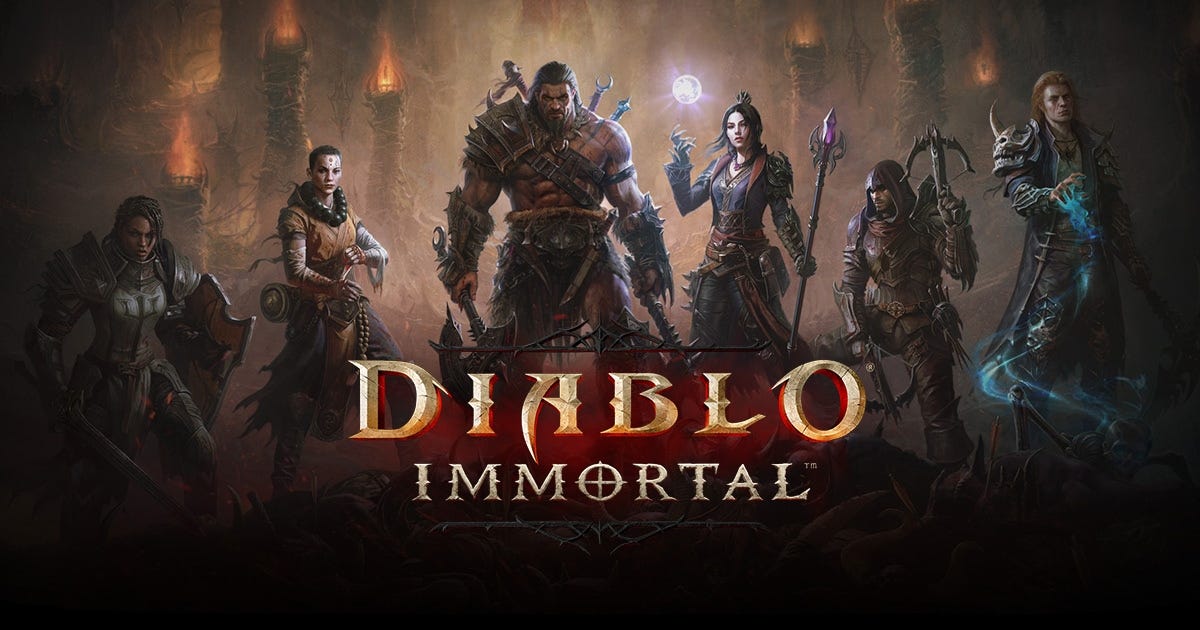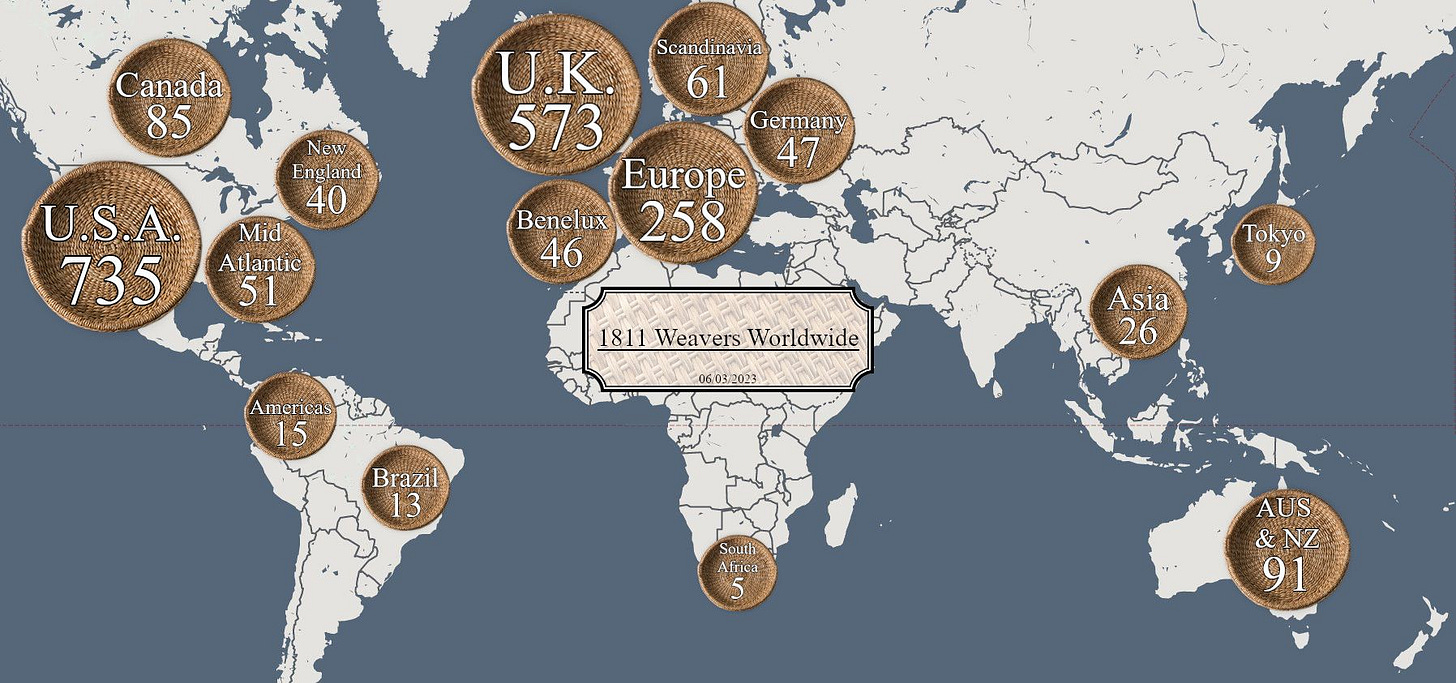I often wonder what bizarre forces drive the Twitter discourse. Why do the same topics keep recycling every few months? An optimist would say that this is just a long-term dialectic refining itself. When two individuals of isolated communities find a point of contention, they create a flashpoint of engagement as both sides rally their best arguments. And even if no one changes their mind, at the very least, each side comes away more informed of the other’s perspective.
The pragmatist would say this is a silly waste of an untapped market. After all, there is money to be made in engagement and controversy. It is drama that fills influencers’ bank accounts, and some ideas certainly produce more drama than others. Big names appear again and again, to milk this content farm for as much as it’s worth. What is that infamous phrase? The purpose of a system is what it does? I can tell Twitter does a lot of things, but it does not do much of fruitful discussion.
And then there’s the side I lean towards most of all: the cynic. Yes, there is indeed a great deal of money to be made. However, human beings were never intended for a marketplace of ideas. True argument and debate, if it can be had at all, must take place under severe constraints. The discourse churns because separated from flesh and blood and consequence, people don’t naturally aim for truth.
The secret behind Twitter is that it is a mix of all three, with healthy portions of the latter two and just a light sprinkling of the first. And it is in that small optimist’s spirit that I dedicate this essay. Perhaps some of my reactionary friends might call that foolish, and maybe it would be if it were the only reason I write these articles. But equally as I write to appeal to other people, I write to appeal to myself, to stir my spirit from dull complacency and to strengthen myself for the challenges ahead. So, let’s dive into this exhausted topic and see if we can surface with new conclusions and a path for a better tomorrow.
What can I say about the Zoomers that has not already been said a thousand times before? For those still not up to speed, I recommend watching Ryan Turnipseed’s video on the subject. But anyone on the ground knows that the kids are not okay. By nearly every metric, Zoomers are struggling. From getting driver’s licenses, to the dating market, to crippling mental health issues, the young are paying the price for the collective malfeasance of the last sixty years.
The problem is that Zoomers grew up in a shuttered world which is still rapidly shrinking every day. I recall in my childhood when wandering bands of children roamed the neighborhood. It seems that practice was finally killed off by the covid lockdowns. I still can’t understand how the Boomers, always the ones decrying video games and social media, decided to shut the world down for two years. What were the youth expected to do, sit in the corner and watch paint dry?
Zoomers and Gen Alpha will be forever marred by what happened during the covid pandemic. Those coming right out of college had their careers effectively put on pause, wasting invaluable years. Meanwhile, those still in our bloated education system got shunted into zoom meetings and online classes. Ever try to teach a kindergartner on a computer? Yeah, it doesn’t really work. You just set children two years back in their already poor education. Anyone with a brain knew going online wasn’t anywhere near a good substitute, but we all did it anyway because that’s what the shrieking health officials demanded.
And this was all over a mild flu.
I could throw at you covid death statistics or the lies regarding the vaccine or even the scandal about mask effectiveness. But for me, nothing really encapsulates the covid lockdowns more than the numerous TikTok videos of doctors prancing in empty hospitals.

All right, enough of the pandemic. It’s old news anyway. Let’s take a look at some of the controversies currently swirling in the Twitter sphere. A trend that has only grown more common on my timeline are TikTok videos of Gen Z complaining about working conditions. I’ve seen dozens of these, and the cries for help are always the same: not enough money, too many hours, and nothing to look forward to. Invariably, some figure like Matt Walsh or an older Boomer dunks on this person (often a woman) that they simply aren’t working hard enough.
I don’t know much of this woman’s personal life, and she could’ve easily grown up with a silver spoon and blew it all on poor choices. That certainly could be (and probably is) a factor for some of these videos. But this widespread trend is not happening because Gen Z can’t pull themselves up by their bootstraps.
Gen Z is entering a spiraling economy that is only looking to get worse—not better—over the next few decades. And yet these tragic cases still might’ve been prevented if only the Zoomers had not been systematically lied to by older cohorts. Recently graduating from college, I can’t say what the current trends of high school are. What I can say, however, is that during my time in the education system, college was still expected and encouraged to both the middle and lower classes.
Public education has been built around college, and it is dragging a generation down.
But why don’t Gen Z make more adult choices!? I hear on Twitter so frequently. It’s their fault for signing up for debt! Except you’re dealing with the most poorly educated generation in living memory. They weren’t taught to make adult choices. They were funneled into the public education system, and it was in that system’s best interest to push as many of them through college as possible—damn the consequences.
You are talking about a cohort that was raised in the classroom, helicoptered from an early age. Gen Z were raised by ipads and iphones. They spent their afternoons playing video games. What schooling they received was not how to look at interest rates and long-term finances. They were told to sign a paper for a student loan because that was what was expected. And now I hear people condemning Gen Z for making poor adult choices when this generation was explicitly prevented from making any adult choices at all.
“In a sort of ghastly simplicity we remove the organ and demand the function. We make men without chests and expect of them virtue and enterprise. We laugh at honour and are shocked to find traitors in our midst. We castrate and bid the geldings be fruitful.” -C.S. Lewis
Waking up in 2024, I don’t think all that I’ve mentioned earlier is necessarily a death blow. It’s a kneecap, certainly, but Matt Walsh is right in that previous generations suffered horribly, and they got through it. One can scrap a living from the civilizational refuse that surrounds us. And even in our squalor, we are more comfortable than most of history.
But in this is a question often overlooked. They say work harder. They say pull yourself up by your bootstraps. But I have to ask: working hard enough for what?
What does the West have to offer these young people? Why should they labor and not simply add to the enormous dead weight already crippling our welfare programs? Some might call that a selfish question, but civilization is only justified by what it offers. If it presents more negatives than positives, you have no right to blame people for opting out.
And so I ask again, what does the West have to offer the youth? The Millennials are struggling with the housing market, never mind what upcoming cohorts will have to deal with. The jobs pay next to nothing and offer no constructive meaning. The dating scene is a ruin and so families are out. The community? What community? I look around and all I see are Walmarts. Perhaps we can appeal to some civilizational ethos? I hate to break it to you, but our civilizational ethos is ensuring the Boomers have a comfortable retirement.
There is nothing then? Then why expect that the Zoomers are going to save themselves? Why expect that they will fulfill their duty and carry the civilizational torch? You cannot simply demand one of the most sickly generations in human history to just grow up. The Zoomers are laying down and dying.
There have scarcely been fewer generations in history that have been more sabotaged by their elders than the Zoomers and Gen Alpha. Societies previously couldn’t get away with this because then they would be immediately conquered by their neighbors. Well, the West is actually being conquered, but that’s a conversation for another day.
Before anyone can pull themselves up by their bootstraps, the crisis of meaning has to be addressed. It is this issue that underlies all others. People need a purpose, and if they have that again, then they can endure almost anything. People need meaning back in their lives, and the decline so many lament won’t stop until that is cultivated again.
Unfortunately, the question going forward is not one of large scale reform—we’re well past that point already. Reform for the Zoomers would mean radical changes to social norms that are still sacred truths to the regime. You cannot fix the dating market without first fixing sexual norms, and it is deeply in the interests of those in power that sexual norms are not fixed. Repeat ad nauseam for every one of our societal ills.
The question going forward is salvage and mitigation. What can we do in our own small lives to halt and reverse the damage modernity has wrecked on our loved ones? How can we create communities that are a bulwark against the forces of atomization and resistant to the entropic nature of the Left? The Rightwing has done a lot of good work in this regard, and there is a lot of excellent conversations happening.
I don’t intend this essay to be a fix-all plan for the problems plaguing the West; I don’t think anyone has the answer for that. But I do hope this essay will be some small part of the solution, a perspective from a Zoomer who has been on the ground and seen firsthand some of the issues afflicting this generation.
What spurred this essay was another debate over video games that erupted around a week ago. The usual rallying cries were shouted, and I found myself caught in another of the endless debates raging on the Twitter sphere.
The arguments went the same as they always did.
“Zoomers are addicts! They need to touch grass!”
“Touch grass where!? There’s nowhere to go!”
“There would be somewhere if they weren’t such addicts!”
And then the conversation terminates there. It terminates because there is no good answer for this problem. All social spaces have been dissolved and moved online. And even if that weren’t the case, most men turn to video games because modern society has been doing everything it can to replace them with girl bosses.
Video games addiction is a feature, not a bug, of the West. And it is a pernicious feature because it hijacks men’s most fundamental instincts. Want to feel needed? Want to be powerful and respected and loved? Here is a digital reality where all those things can come true! All we ask is that you give your money, and more importantly, your life to our digital simulacra.
And the worst part about all of this is that video games offer more meaning more quickly than most of us can contend with. Sure, at the end of your burnt-out binge you will regret your life choices, but not a second before. We’ve been defeated utterly and to deny this is to deny the reality we find ourselves in.
We were outmaneuvered in a two pronged assault. The first is that reality has steadily become less meaningful, while the second is that simulacra has become more addicting. In my lifetime, I know I will see the rise of sexdolls not unlike what is in Blade Runner 2049. And that will probably be the genetic bottleneck which will crush anyone who isn’t some sort of fanatic. I guess the silver lining in all of this is that only true believers will inherit the Earth. They get to live in the ruins because everyone else sterilized themselves.
I was asked to comment on the rise and fall of JRPGs. I didn’t know how to answer that question because JRPGs were largely before my time. But what I do know is the modern gaming scene, and I have played lots of games before and after cultural ground zero. The conclusion I have come to is that video games have gotten steadily better in the past twenty years.
A lot of readers may argue back on this conclusion, but you are misunderstanding the ethos of modern entertainment. You make the assumption that video games are made to be enjoyable. That is, admittedly, part of the formula. But modern video games are made to waste your time, and in doing so, make a profit. The player who spends a hundred hours in a skinner box is much more likely to purchase microtransactions and dlc and season passes than the one who spends a meager ten hours on a curated experience.
I remember playing Chrono Trigger. That was a masterpiece of a JRPG, and it only held my attention for a dozen hours before I got bored and wandered off. I was bored by the turn-based battle system, the stat progression, and the grind. Could an indie studio make a JRPG and create a dazzling success? Possibly, but it would have to innovate to make the experience fresh. Meanwhile, modern developers are reaping hundreds of millions, and they have zero reason to default to more archaic methods of design. Modern video games are not meant to end. They are meant to attract eternal customers, and that is why they have largely fallen in “quality” over the last few decades.
If nothing else, please consider that Diablo Immortal, the source of the infamous meme “is this an out of season April Fool’s joke?” made a hefty profit. The video games industry is not the way it is because of corrupt game publishers. It is the way it is because of corrupted consumers.
This essay is not a condemnation of video games, only a condemnation of what video games have become. Unlike some others, I do think digital experiences can be constructive. However, this ideal of video games largely does not exist in modern context. Similarly, I don’t condemn people who indulge in video games. It is a fun recreation that I also partake in. But it is also counterproductive to not acknowledge the larger scale detrimental effects video games have on the youth.
Victory must mean eventually demolishing video games as they currently exist. I don’t think that is a bad thing because it will mean replacing video games with something better. That is, if we don’t see an apocalyptic collapse first. In that case, I guess we can still comfort ourselves dueling in Mad-Max style Thunderdomes.
I don’t have an easy answer for the video game question. Just like all the other intractable problems facing our society, I don’t think there are any easy answers. It can’t be just to tell the youth to disconnect and touch grass because they largely won’t. You would better spend your time beating your head on a brick wall.
What about creating RW video games? If we cannot simply unplug the youth, perhaps we can fight fire with fire? I admit, I would love to see a RW games studio. However, there are two major issues with this approach. The first is the practicality on the ground. We’re just getting our art scene up and running. Unless you are a polymath superstar like Toby Fox, video games require a multitude of people with different skillsets—and more importantly—funding. I’m still waiting for the person who is able to solve that problem.
The second is that any RW game studio is going to have to find an answer to the issue of RW art. Now, I am not saying that conservatives are naturally bad at art. That is another tiresome argument I see too often. But one of the problems is that Western populations have been trained by news and entertainment media to collectively cringe at Christian narratives and tropes. Even a whiff of Ned Flanders in an otherwise okay product is enough to turn the masses away.
Whenever Hollywood puts out an acceptable movie that is not too woke, people instinctually put their blinders on to the cringe the messaging and just get through it. They do this because Hollywood still has high enough production values to get people to turn their brains off and consume product. RW art does not have high production values nor do we have access to the same entertainment mediums, and on top of this, religion has been smeared to the extent that just directly writing about Christianity is a challenge. Reactionary writers have to walk a delicate balance of never being too overt while maintaining the integrity of the work.
For various reasons, I don’t think a reactionary video game studio is in the cards just yet. We’ll see what happens in the next decade or so.
The only solution is to build something better than video games. I know I said earlier that it is a difficult question, but I don’t think it is outright impossible. While we can’t always beat the digital skinner boxes moment-to-moment in dopamine, what is sorely needed is a vision of what can be achieved. Men need a peer group and a way to earn status amongst that peer group. More than that, men need a clear goal that they want to accomplish.
An organization that I don’t see getting quite enough credit in online circles is Basket Weaving. They’re a social organization for like-minded reactionary individuals, and they were one of the first ones on the scene when people began calling for irl organizing. I’m usually never comfortable shilling, but I highly recommend checking them out. Reach out to The Distributist on Twitter for further info.
This organization has done a lot of good in the past few years, but as people are getting more connected, the question is inevitably where to go from here. I can say that what is needed to attract the Zoomers is mentorship, and more importantly, competition. It can be structured around whatever activity people like, but there needs to be clear rewards and status up for grabs. Video games get their power from simulated rewards and status, and the only way to properly counter this is to provide real rewards and status.
One of the pioneers in this field is an annual art contest called Passage Prize. Published by Passage Press, the magazine hosts a number of categories which include fiction, non-fiction, poetry, and visual art. Right now the third issue of the magazine is accepting submissions until March 1st. I also highly recommend checking that out. The creators behind Passage Prize know very well that today’s society is in desperate need for ambitious men, and ambition can only be stirred in the soul when there is something worthy of being ambitious for.
This is the key to winning the hearts of the youth.
“What would it really mean to win the culture war? I think it would mean that the average normie, the average NPC, reflexively and thoughtlessly recites right-wing ideas in the same automatic, catastrophic register that they recite left-wing ideas today.” -Zero HP Lovecraft
What does victory look like? What does it mean to finally win the culture war? Zero HP gives an excellent metric, but the question is always how to get from A to B. There will be no institutional capture as the Left know very well the stakes. They won’t be caught blindsided like the Right have been for the last sixty years. They’re going to crash this airplane straight into the ground before they give up the controls.
And even if there was a strategy to recapture the West, I’m certainly not the genius to figure it out. But I think there is a crucial piece of the puzzle that older cohorts can often see, but fail to grasp the full implication.
Back in September of 2023, Sargon of Akkad posted a thread on movies Zoomers need to watch in order to share common ground with older generations.
I rather liked the idea, but I had some criticisms. Namely, Zoomers do not process culture by television and movies anymore. The zeitgeist has moved firmly to video games (as discussed above). More Zoomers get their entertainment and cultural dialogue from Fortnite rather than at the movie theatre. Moving back to an earlier iteration of pop-culture is just as likely to bore them as it is to actually provide a meaningful experience. It would be like someone telling a gamer to go from playing the latest Call of Duty to Pac-Man to really understand culture.
The problem of reverting to earlier forms of media is attention span. Movies require an investment of time that many Zoomers aren’t accustomed to. I wager that of those Zoomers who took Sargon’s advice, many, if not most of them, did not actually sit down and watch the movie like Sargon intended. Instead, they put it on in the background while playing video games or doing some chores. Maybe they even listened to it while driving.
As the culture splintered into a thousand niches, this did not reduce the rate of consumption. In fact, consumption has only increased as time passes on. We live in an era of binge watching, consuming entertainment even as we are busy doing other things. The Zoomer exists in a state of constant overstimulation and is always multitasking.
This has a number of detrimental effects, but the primary one is that Zoomers by and large do not experience culture in the same way older generations do. All subtle artistic craft that might be in a movie go right out the window because there is an information overload. The Zoomer simply can’t process fast enough.
At best, they got a plot summary of the movie rather than the movie itself. And in some cases, this literally means they went to a video critiquing the movie rather than watching the movie itself. After all, what would be a quicker way of getting a breakdown of the movie and the correct opinions on it?
I understand this is not a problem relegated solely to the Zoomers, but it is endemic, and it is only getting worse from here on out. What needs to coalesce among Rightwing groups is a deliberate counterattack for attention span. The old ways of consuming mainstream culture are dead, and until social media like Twitter is erased from the Earth, this is the state of affairs we’re perpetually going to have to fight back against.
I like Sargon’s idea. I really do. Despite my gripes with pre-woke Hollywood, I think it’s important to develop an understanding of where the culture was and how we got here. And importantly, I think there is a lot for reactionaries to learn back when art could still be made decently.
What needs to be addressed however is the mode by which we consume culture. What modernity has done has shifted culture solely to the individual. Friends and family are scattered into their own bubbles, rarely interacting with each other. What needs to happen is an effort to bring back shared cultural experience. I truly believe this is the key to Zero HP’s vision. It is only with organized groups—even if we are a minority—that we can effect change.
What good is it to go out and watch movies from the 80s and 90s if you can’t discuss it with anyone you know? Normalcy can’t return until people are drawn back together and experience the same things together. That is what we need, and that is a critical step to developing parallel culture to the dregs of Hollywood. It will only be through those networks that a true counterculture can emerge.
Some people rightfully criticize me for being a pessimist. I admit, I do a lot of blackpilling. But this is honestly one of the few things that I feel truly optimistic about. It’s one of the few things that make me actively look forward to the future. Already the gears are in motion, and we are building. I can’t wait for what we are going to create in 2024 and moving forward. I think what we are doing here is worthwhile, and I think we are going to win.



























Being a millennial, I was severely addicted to video games when I was younger. Nearly all of my free time during my high school years was spent playing Diablo 2. As I got bored with one game, I would move on to another. Eventually, games as a whole stopped being fun and I stopped playing them. You can't just tell young people to stop playing video games because they'll resist you. They'll say something like, "Who do you think you are, my mother?" The only way they'll break free of that digital addiction is by going through what I went through. They will have to realize on their own that they shouldn't waste their time playing video games.
Attention spans are a different matter, though. Young people don't have the patience to read long form content. I openly admit that the reason why my stories are so short is because my attention span is short. We'll just have to adapt and make content that's short, catchy, and to the point. OrthodoxKyle and Redeemed Zoomer are the two examples that immediately come to my mind. Redeemed Zoomer especially has grown rapidly in less than a year. The young people themselves have recognized this problem and have adapted to it accordingly.
I don't know how to properly end this comment, so all I can really say now is that I enjoyed this article.
Well done! One of the saving graces of the ongoing collapse will be the art which aligns with Christ.